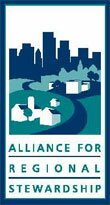OVERVIEW ? AMERICAN CHAMBER OF COMMERCE EXECUTIVES
Description: National non-profit association that serves individuals in Chamber of Commerce management and other organizations related to economic and regional development.
Membership: 1,500 members, representing 7,300 staff in chambers of commerce throughout the U.S. and Canada.
Strategic Priorities include:
- Expand educational programming into economic development and event management; enhance offerings in government relations practices
- Future-focused trend information, to bolster historical dat
- Foster more virtual communities centered around peer interaction via e-vehicles
- ?Consultants-on-demand? to address management, capacity and efficiency issues in specific departments at chambers where help is needed/requested
- Ramp-up of convention experience for ACCE major national conference
Major Programs/Services include:
- Professional and career development for chamber executives
- Tools to improve chamber management/operations, including: identifying/analyzing trends affecting U.S. communities, benchmarking studies, and sharing best practices
- Annual conference, 1-hour teleseminars, 1-day regional summits, symposia and workshops; satellite telecasts, education programs
- 5X/year magazine, Smart Growth e-newsletter, WorkforceDevelopment e-newsletter, other publications
- Networking through Community Peer Groups organized as Metro Cities Council, Major Cities Council, Suburban/ Edge Cities Council, Emerging Cities Council, Destination Cities Council
- Awards programs
- Retirement and insurance plans for member chambers
Regional-Related Programs include:
Last year, with a grant from the Ford Foundation, ACCE and FutureWorks partnered to create the Regionalism and Sustainable Development Fellowship ? an 18-month experience for 30 self-nominated chamber, economic development and regional leaders that provides hands-on training, peer knowledge exchange, research, and examination of working models on a wide range of sustainability issues, including: infrastructure, immigration, land use, housing, education, minority inclusion, and inner-city challenges.
When the program concludes next year, fellows will deliver?as a group?a policy and practice paper to ACCE membership on regionalism and sustainability issues. Presenters to the ACCE Fellows group have included ARS Board member Frank Beal, ARS President/CEO David Thornburgh, and ARS Fellow David Adkisson.
History:
ACCE was founded in 1914. Development programs for Chamber professionals were begun in the 1920s; the current name dates to the 1940s.
Board of Directors:
Executive Committee ? 13 members
Board of Directors ? 38 (by U.S. regions)
Chair: Mark V?Soske, Toledo, OH Chamber
Staff:
President: Mick Fleming
Native of Buffalo; graduate of Cornell University. Career has included teaching, coaching, publishing, management, marketing and lobbying positions. Joined ACCE in 2001. Former positions: Manufacturers Association of Central New York, Business Council for New York State. Volunteer board positions include universities, arts council, workforce investment board, and health car coalition.
Staff: 24.
For more information on benefits to current ARS members under the Affiliation Agreement, click here.
For more information on the two national conferences with regionalism-related content that ACCE plans this year, click here.
|
Gain access to practical insights, advice, ideas, and cutting edge practices from around the country.
ARS is the nation?s premier peer-to-peer network of civic entrepreneurs working to build vibrant, globally competitive regions.
|

